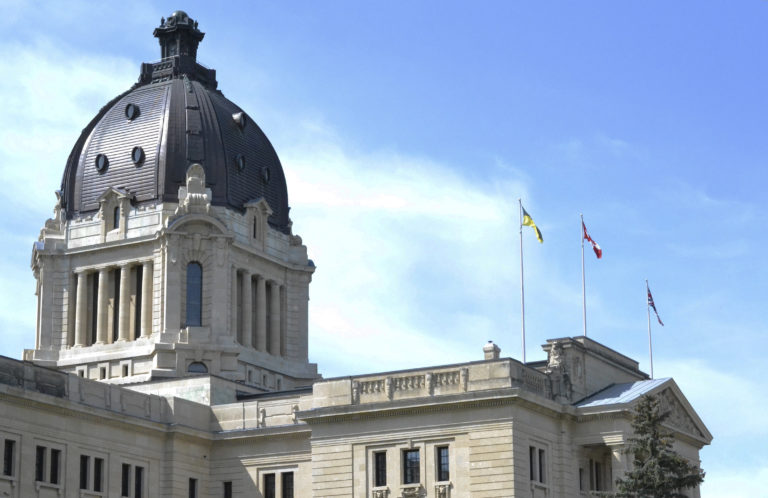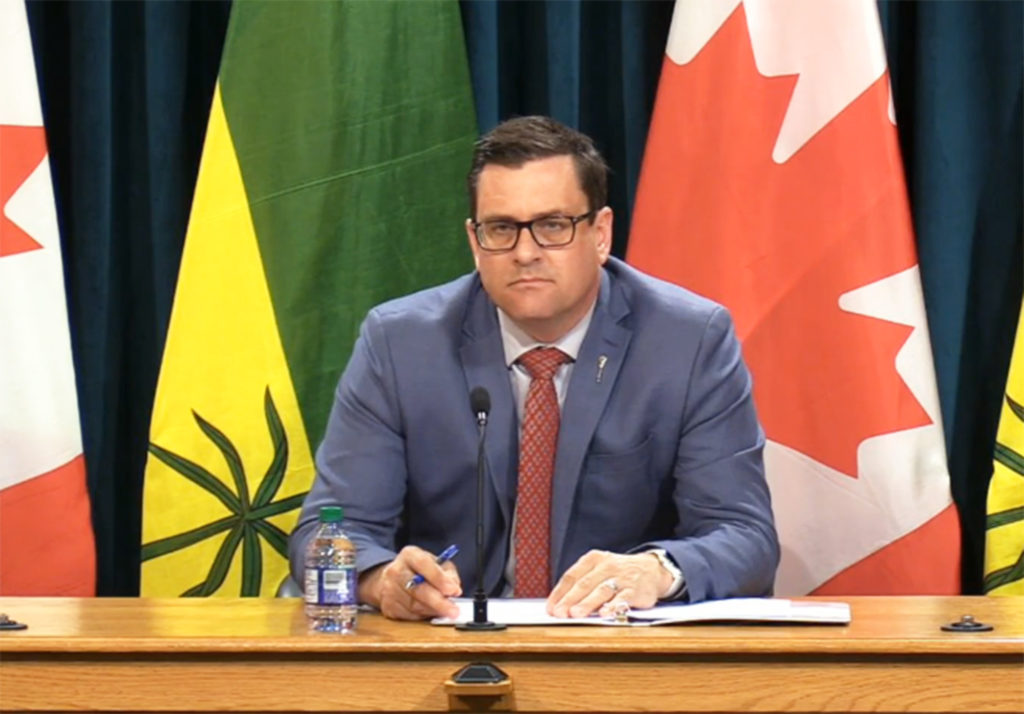
The provincial government has announced a one-time funding increase of $171,000 for emergency support shelters in six Saskatchewan communities, including Prince Albert.
The Prince Albert YWCA, along with the Lloydminster Men’s Shelter, Lighthouse North Battleford, Soul’s Harbour Moose Jaw, Regina YWCA, Regina Salvation Army, Souls Harbour Regina, Saskatoon YWCA, Saskatoon Salvation Army and Lighthouse Saskatoon will all receive funding. This brings the government’s total emergency shelter funding to $3.93 million.
Social Services Minister Paul Merriman said the funds will help pay for extra cleaning and disinfection supplies during the COVID-19 outbreak. He also said they’ll consider offering more if it’s not enough.
“This is what we have right here right now, and if there’s a continued ask, then we would have to evolve with what we’re seeing,” Merriman told reporters during a press conference Tuesday afternoon. “We’re asking the shelters to report into us on a daily basis as to … their capacity. Are they at capacity? Were they at capacity last night, and how many were referred to hotels? This is evolving as we speak and want to be able to continue to hear their needs. If we have to evolve, we will certainly have those discussions with them.”

Merriman said he’s had weekly conference calls with mayors and shelter operators in Saskatchewan’s largest cities, calling them his “ears on the ground” during “an unprecedented time” in the province’s history.
When asked about how Saskatchewan’s funding compared to those in different provinces like Alberta, which pledged $30 million to homeless shelters on March 20, Merriman said they use a different funding model. He said Saskatchewan provides 50 per cent of shelter funding up front, and the rest on a per diem basis.
“This $171,000 lift overall is to deal with any of the cleaning supplies that they (need),” he said. “If they are social distancing, they will have reduced numbers in the shelters, so again, we’ll still continue to pay them on a per diem basis.”
Merriman added that he’s watching other provincial governments to see what works and what doesn’t.
The announcement was one of several made by the Ministry of Social Services on Tuesday as part of their pandemic response plan.
That plan includes allowing youth who age out of foster care to stay in their current residence during the pandemic, and using hotels and vacant Saskatchewan Housing Corporation (SHC) units to accommodate vulnerable residents who need to self-isolate or who are turned away when local shelters reach full capacity.
There are roughly 1,700 vacant SHA units in Saskatchewan’s 29 largest communities, along with 1,200 in the rest of the province. Merriman said he did not know exactly how many vacant in Prince Albert.
“I know shelters are going to have to reduce their capacity, and that’s why we wanted to make sure that we had an overflow into the hotels temporarily until we can find them some permanent homes,” he said. “We want to make sure that if there is capacity in (emergency shelters) that they’re still maintaining their social distancing.”
Social services offices will continue to remain open during the outbreak. The first hour is reserved for vulnerable individuals to help minimize the risk of spreading COVID-19.
Provincial NDP leader Ryan Meili said there were some positives to the Ministry’s pandemic plan, but overall it was disappointing.
In a statement released Tuesday afternoon, Meili applauded the decision to house vulnerable residents in hotel rooms, but criticized the government for not offering more funding for struggling shelters.
“Other provinces acted much more quickly, including Alberta, which committed $30 million over a week ago to support shelters and frontline organizations,” Meili wrote. “$171,000, divided between ten shelters, is a far cry from that level of support. It simply won’t come close to addressing the needs people are facing.”
Meili said many organizations are having to hire additional staff and change their facilities to meet new social and physical distancing requirements. He said there need to be more resources that help those shelters operate.
He also said he was disappointed not to see more testing sites located in downtown centres, or support for other aid organizations, like food banks.
Too early to say if measures will help Prince Albert shelters
Shelter organizers in Prince Albert said it’s too early to say if the government’s measures will help improve conditions, or if they’ll need more resources.
Prince Albert YWCA executive director Donna Brooks said she doesn’t know how much of the $171,000 pie they’ll receive. Without that information, she hesitated to say too much.
However, Brooks was pleased with other ministry plans, like the promise to use hotels and SHC residences to help vulnerable residents self-isolate.
“Within the shelter world people share bathrooms, people share kitchens (and) it’s very difficult to isolate,” Brooks said. “If they can ensure hotel rooms for clients who are exhibiting symptoms or clients who actually have COVID-19, that would be a huge benefit.”
At full capacity, the Prince Albert YWCA operates a 60-bed shelter for women, children and youth, and a 30-bed shelter for men and women ages 18 and older. There is also a 10-bed cold weather shelter the YWCA opens from October 15 to April 15. Brooks said the cold weather shelter will still close this year as usual because it’s too difficult to maintain social distancing.
“The pandemic has put a lot of pressure on us,” she said. “We’re no longer doubling up. At our Central Avenue shelter and Our House, we’re not putting more than one client in a room, and in both those shelters, there are a lot of rooms designated for two (people), but because of the pandemic we can’t do that.”
Brooks said the YWCA is operating at about two-thirds capacity due to social distancing requirements.
